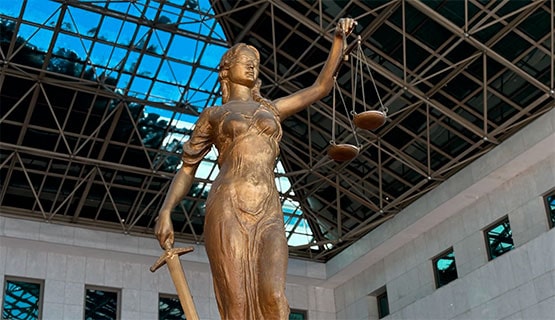
On July 4, 2025, the press service of the newly created cassation courts (CC) provided an explanation of the reasons for their creation and the specifics of their work.
Since July 1, 2025, three cassation courts began operating in Astana on the instructions of the head of state: for criminal, civil and administrative cases. The new courts are located in the capital. "Until July 1 of this year, the functions of the cassation instance were carried out by the Supreme Court.
The review of civil and criminal cases was carried out according to the principle of "selective" cassation. Its essence was that citizens' petitions on civil cases were first submitted for preliminary consideration and the judge made a single decision to transfer them for collegial consideration or to refuse to transfer them," the institution explained.
In criminal cases, the preliminary examination was carried out collectively by three judges. "But this procedure was also imperfect, which created a certain inconvenience for the citizens of the population," the explanation says. There were no complaints in administrative cases, where initially, with the introduction of administrative justice, continuous cassation was in effect. That is, there was a different approach to cassation review for the three types of legal proceedings.
"This situation limited access to the cassation review and, accordingly, did not respond to the public's request for access to justice. Starting from July 1, 2025, preliminary consideration in criminal and civil cases has been abolished," the Constitutional Court said.
The cassation courts have been operating on the principle of "continuous cassation". The "continuous" cassation differs, first of all, by the stage of acceptance of the case for production. Now, all incoming complaints are accepted for trial and considered on their merits by a panel of at least three judges. As a result, the review of judicial acts in cassation is not carried out at the discretion of the court.
The period for consideration of cases in cassation will not exceed six months "The Supreme Court, as the highest judicial body, focuses on ensuring uniformity of judicial practice. Judicial acts may be reviewed on the initiative of a judge of the Supreme Court in exceptional cases if they are adopted by local and cassation courts contrary to judicial practice," the Constitutional Court noted.
By presidential decree, the following were appointed: chairman of the Court of Cassation for civil cases – Askar Spartakovich Smilov and 37 judges; for criminal cases – Akan Maratovich Zhumagulov and 20 judges; for administrative cases – Berik Tuleutaevich Nazhmidenov and 18 judges. By order of the Head of the Judicial Administration, Yerzhan Kuzhakhmetov, Head of the Cassation Courts Department, was appointed. The addresses of the cassation courts in Astana are: for civil and criminal cases – Astana, Beibitshilik str., 37; for administrative cases – Astana, 37. Tole bi str., 53.
